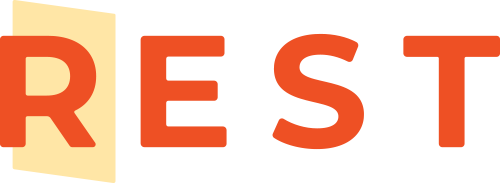Katie McMurray
Sensory Tool House, LLC (STH), ceo and founder
Katie’s role involves all aspects of the business. STH has 14 employees who perform numerous roles, from customer service to community engagement, purchasing, sensory room design, and consulting and training for employers and educators on neurodiversity in the workplace and schools.
If you could describe yourself in one word, what would that be and why?
Open: The culture at STH is highly inclusive. Most of our employees are neurodivergent, and we embrace these differences. My team and I work diligently to ensure support is available for all, and staff are encouraged to communicate with me when needed—I always make time for them.
Recently, we encountered a situation where an employee was hired for a position that seemed suitable but, after several weeks and numerous supports, it became apparent that it wasn't the right fit.
Instead of parting ways, we viewed this as an opportunity to leverage their strengths elsewhere.
By fostering open discussions, we turned what could have been perceived as a failure into a positive experience. This approach allowed us to retain a loyal, talented, and productive team member who contributes to the strength of our team.
What is your favorite inspirational quote or best piece of advice given to you?
The best piece of advice was given to me by one of my employees. During a retreat, they stated that they would like me to model the self-care and time off that I ask the team to do. It was similar to the advice you get as a parent: "If you don't take care of yourself, you can't support us, and we (the employees) care about you." It was eye-opening to hear that from an employee in front of the entire team. As leaders, we not only have to model the work, but also the self-care and life balance.
Do you give back to the community with your team and work? If so, what does this look like?
We are always giving back to the community. We partner with the local school district and provide resources during events. We have set up sensory bottle making stations for thousands of children during field days and other events. Additionally, we bring large equipment like soft seating, bubble tubes, and more to create sensory rooms in classrooms.
We have donated thousands of dollars of sensory support tools to non-profits and schools. Furthermore, we have established Sensory Recovery areas for community events, staffed with personnel, allowing attendees to step away when overwhelmed, rather than leaving. This enables participants and event staff to regulate, reset, and rejoin the event, granting access to many who might otherwise be unable to attend.
Recently, we contributed sensory space design and funds to The Landing, a 62-unit affordable housing project by the Family Support Center of South Sound. Part of the sensory project was funded by a local donor, and we matched their contribution. The Landing, which opened this year, now provides affordable housing to families previously unhoused and survivors of domestic violence. Our team created sensory panels for the reading areas on each floor, and installed a bubble tube in the entry and a bubble wall in the community room.
These are just a few examples of how we give back.
In honor of Women's History Month, can you spotlight a woman from either your life, history or your community who has personally inspired you?
There are many women in my life who have inspired me. My last employer is one of them. Grant & Associates was formed by and is women-owned. Katie Bennet, who is now retired, created an incredible place to work, helping those who were injured on the job. Kaethe Long was my direct supervisor and took over the company.
She is an inspiration to all. She has helped to guide me as a leader and has been one of my biggest cheerleaders, always lifting me up, even when that meant I needed to resign to pursue my dreams. Not only did she do this for me, but she does this for all her employees. Outside of work, she is a model for community involvement, volunteering her time to further positive change in our communities.
As a woman community leader, how do you approach mentoring and supporting younger generations of women in your community to ensure a sustainable legacy of leadership and empowerment?
The first step in this is mentoring those inside your organization. I believe that all who work at STH are leaders in our community. What we do makes an impact on everyone that walks through our doors. Retail staff are often seen as entry-level positions; however, they are the face of our company. It is our employees who impact lives every day. We work with our staff to develop leadership skills and support them in all of their endeavors, whether it is at STH or beyond. We also work to bring interns in to give them opportunities to learn and grow as leaders. These young women get opportunities to work not only with me but also with the other women leaders in our organization.
I also spend time volunteering for various organizations and in our local schools. Currently, I serve on the executive board for the Family Support Center of South Sound, where we support families and survivors of domestic violence. I have been a Big Sister with Big Brothers Big Sisters and still maintain contact today. These are just a few examples.




